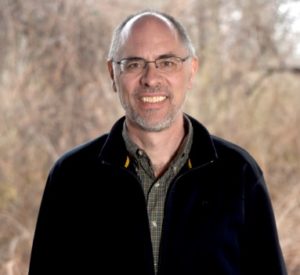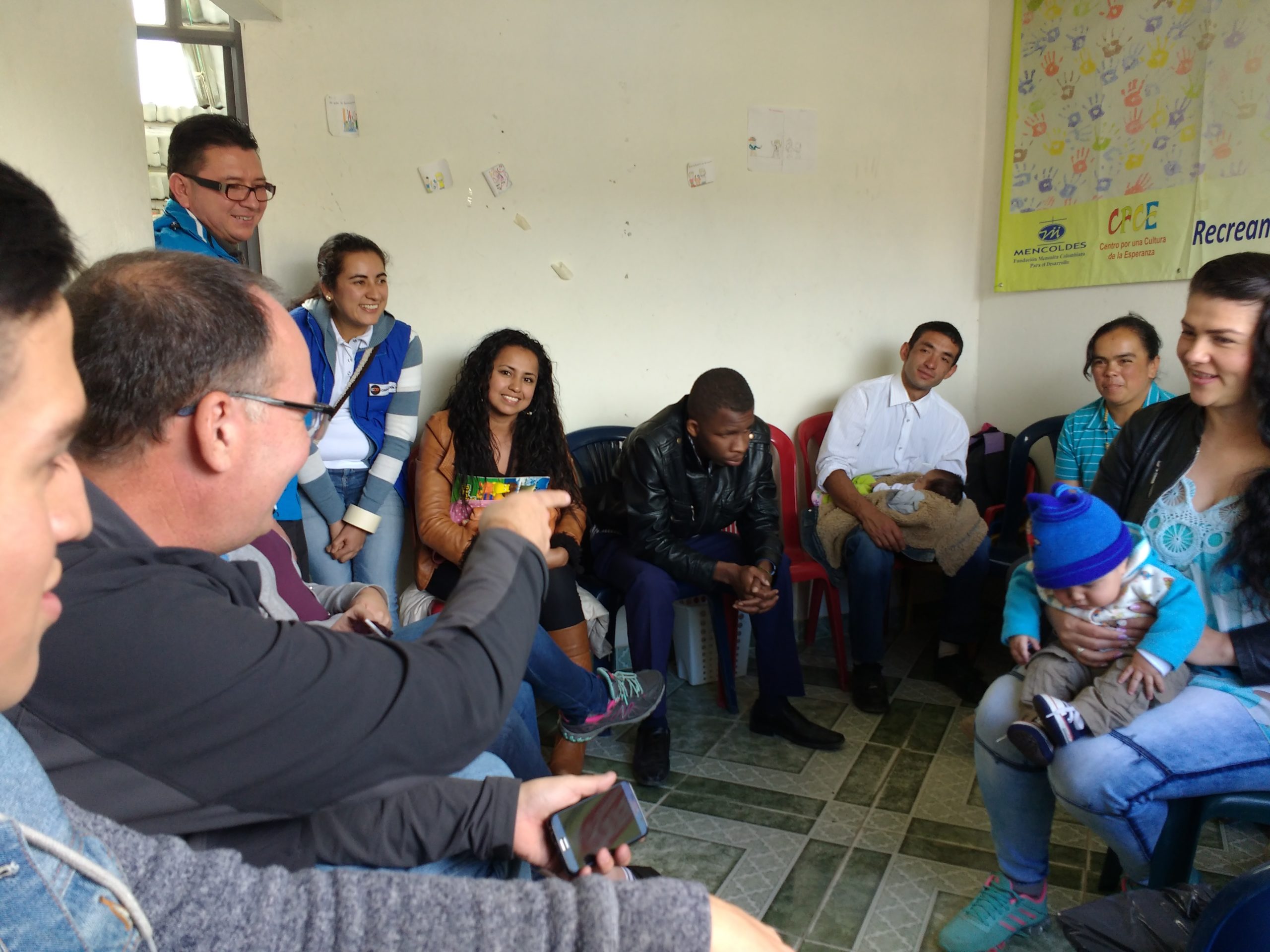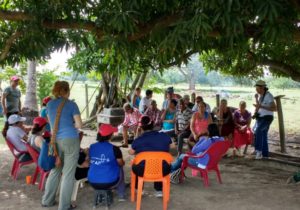 Andre Gingerich Stoner is director of Holistic Witness for Mennonite Church USA.
Andre Gingerich Stoner is director of Holistic Witness for Mennonite Church USA.
For a week in May, I had the privilege of being part of a delegation visiting Mennonite churches in Colombia to help them celebrate the Days of Prayer and Action (DOPA).
We represented Mennonite Church USA, the U.S. Conference of Mennonite Brethren Churches and Mennonite Central Committee U.S. We were hosted by Mennonite and Mennonite Brethren churches, JustaPaz (the Colombian Mennonite peace and justice ministry) and Mencoldes (the social service agency). I am grateful to MCC for helping make this visit possible.
I was impressed, encouraged and challenged by the ministry and witness of our brothers and sisters in Colombia.
We spent several days in Soacha, a city near Bogota where tens of thousands of people who have been displaced by the violence around the country have come to live. Women have fled their home communities because they were afraid their children would be recruited by armed groups. People from various parts of the country with all their differences live next to each other. Some are squatters, building homes on hillsides and in ravines. Basic services are lacking. At times paramilitary forces serve as an unofficial police force.
the violence around the country have come to live. Women have fled their home communities because they were afraid their children would be recruited by armed groups. People from various parts of the country with all their differences live next to each other. Some are squatters, building homes on hillsides and in ravines. Basic services are lacking. At times paramilitary forces serve as an unofficial police force.
In this setting, Mennonite churches have created community centers where children can gather for meals and mothers can share their stories.
Seminars are held on trauma healing and conflict resolution. A sewing workshop provides job training and employment. Mennonite pastors and leaders have organized a gang summit and protested when people are “disappeared.” People pray together and talk about faith. In this place, a new Mennonite congregation, “Church of the Resurrection,” is being birthed out of these relationships. A Mennonite Brethren congregation has been meeting in a different barrio in Soacha for some years. Together with other Mennonite ministries, the pastors and leaders gather monthly as part of an “Anabaptist table,” to support and encourage each other.
Our Colombian brothers and sisters seem to engage naturally in “integrated” ministry, what we have sometimes called “holistic witness.” Courageous advocacy for justice, creative peacemaking, sharing the gospel and forming faith communities, generous service, loving relationships – these are all interwoven and complementary aspects of the life and ministry of Colombian Mennonites.
We also heard reports about the peace negotiations between the government and one of the largest guerilla forces. These are incredibly complicated and address many multiple issues. Colombians are hopeful that an accord can be reached in the next months, but they are also very aware that a cessation of violence is not the same as true peace.
We also visited the rural community of El Guayabo, north of Barrancabermeja (we got there by plane and boat). Sixty farming families are resisting being pushed off their land. After listening to their stories, worshipping and eating together, two of their leaders traveled back to Bogota with us. The next day we accompanied them to a meeting at the U.S. embassy. It was gratifying for these campesinos to get a hearing. Their struggle is just one example of the challenges a “post-accord” Colombia will continue to face.
 Mennonites in Colombia number just a few thousand, but their Jesus-centered witness has far surpassed their small numbers. Even as they have relationships with farmers, workers and families in barrios, they have earned respect from decision-makers in politics and society. They are turned to for counsel, for credible information, for resources on peacemaking and restorative justice.
Mennonites in Colombia number just a few thousand, but their Jesus-centered witness has far surpassed their small numbers. Even as they have relationships with farmers, workers and families in barrios, they have earned respect from decision-makers in politics and society. They are turned to for counsel, for credible information, for resources on peacemaking and restorative justice.
At each ministry site, we spent time in worship and prayer. But we were reminded that DOPA is also about action. At a closing ecumenical worship service, we were able to share from a letter to President Obama signed by American religious leaders, including Mennonite Church USA executive director Ervin Stutzman and Don Morris, interim executive director of the U.S. Conference of Mennonite Brethren and Rev. Alan Robinson, national director of the Brethren in Christ Church U.S. The letter calls on the U.S. to redirect aid from armed forces to support the implementation of the peace agreement.
Colombians are beginning to imagine an end to more than 50 years of civil war.
Yet the challenges in a “post-accord” time may be every bit as daunting. It is as important as ever for us to stand with our brothers and sisters in Colombia. We are blessed to be partners with them in the global body of Christ as we continue to seek to pray and act for God’s peace.

